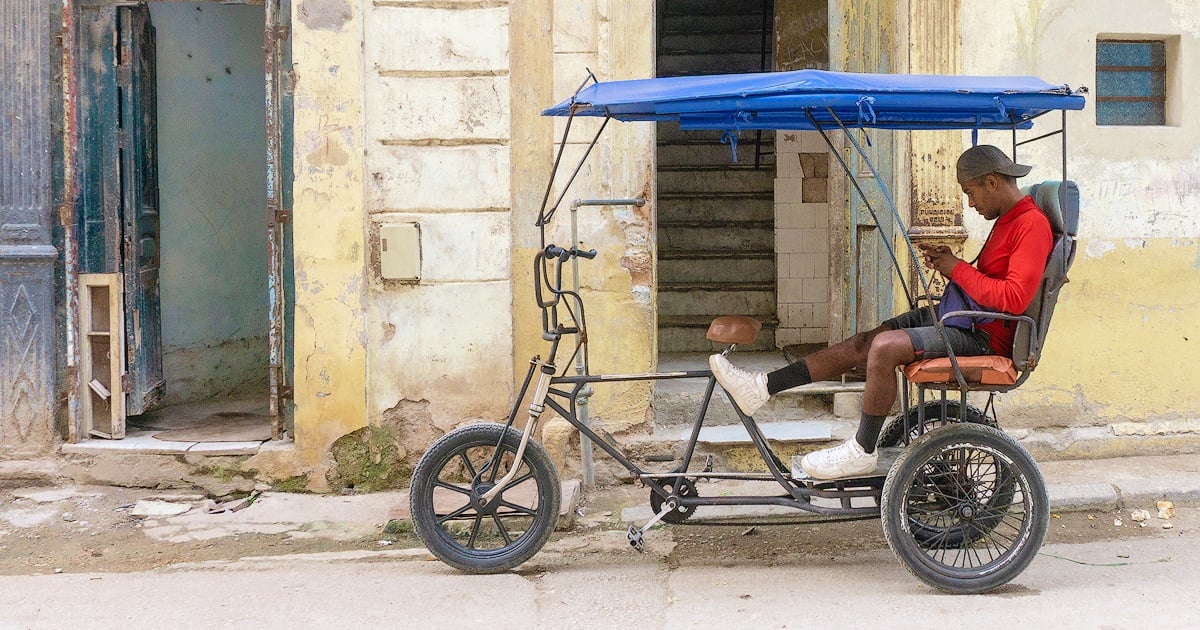
Related videos:
The average monthly internet consumption in Cuba reached 9.9 GB per user, reflecting an increase in the use of digital technologies, but also highlighting the ongoing challenges of infrastructure, high costs, and limited investments that hinder an inclusive and effective digital transformation.
In this context, Mayra Arevich Marín, the Minister of Communications, presented the so-called "pillars of this digital transformation" to the Commission for the Attention of Services of the Cuban Parliament, emphasizing their cross-cutting nature for all of society, as reported by Cubadebate.
The minister reported that the average monthly Internet consumption in Cuba reached 9.9 GB per user, reflecting an increase in the use of digital technologies, while international connectivity grew by 8.6% compared to 2023.
He explained that the policy includes a strategy for the development of artificial intelligence and emphasized the importance of ensuring cybersecurity from the most basic levels to the central level: “It is necessary to carry out surveillance and diagnostic actions to protect the processes,” he stated.
The minister also announced the establishment of a secretariat for digital transformation, led by a deputy minister, which will assess the implementation of these policies to overcome obstacles and accelerate progress.
In addition, he announced that the smart municipality project will be presented in 2024, which is one of the main goals of the sector.
A key aspect of digital transformation is banking integration: “We have identified significant progress, but local governments need to work with greater organization and rigor. Denials of the use of digital platforms for payments in businesses should not be tolerated,” alerted Arevich Marín, which translates into a threat to all economic actors who resist this process imposed by the regime.
In the field of electronic government, the official highlighted the progress made in the implementation of digital signatures within governmental bodies and structures, although she acknowledged that their use remains insufficient.
Currently, there are 263 government digital portals, and out of the 328 procedures identified for individuals, 140 are equipped with some level of digitalization.
Arevich also introduced the new digital government platform, which will be called SOBERANÍA.
This project aims to strengthen national identity, promote transparency in public management, and encourage citizen participation in policy formulation and decision-making—utopian goals within the social reality of Cuba.
The government discourse on "improving the connectivity" of the population to the internet has taken center stage in 2024, reinforcing a narrative that contrasts sharply with the everyday reality of many Cubans.
In November, the Cuban government boasted that it had doubled internet traffic in 2024, although connectivity continues to be hindered by censorship, high costs, and the poor quality of the service monopolized by the state-owned Empresa de Telecomunicaciones de Cuba S.A. (ETECSA).
According to the official media outlet Granma, internet traffic in Cuba has seen a significant increase, rising from an average of 113,045 Gigabits per second (GBPS) in download and 16,914 GBPS in upload between January and November 2022, to 239,019 GBPS in download and 40,605 GBPS in upload in July 2024.
Within that same narrative, in May, the state-owned ETECSA claimed that its internet service is the most affordable in the Caribbean, a statement that contrasts with the frequent complaints from users about high costs and low quality.
According to Lidia Esther Hidalgo Rodríguez, the commercial vice president of the state-owned company, it is possible to patent this fact considering the parameters of the informal exchange rate: "One gigabyte of mobile data is equivalent to 0.17 dollars," she stated to the official newspaper Granma.
Frequently Asked Questions about Connectivity and Digitalization in Cuba
What is the average internet consumption in Cuba in 2024?
The average monthly Internet consumption in Cuba has reached 9.9 GB per user, reflecting an increase in the use of digital technologies, although challenges in infrastructure and accessibility remain due to high costs and limited investments.
What problems does Internet connectivity face in Cuba?
Despite an 8.6% increase in international connectivity, Cuba's connectivity continues to be hindered by censorship, high costs, and poor service quality, which is exclusively managed by ETECSA, the state telecommunications company.
What digital initiatives has the Cuban government presented for 2024?
The Cuban government has introduced a new digital platform called SOBERANÍA, aimed at strengthening national identity and promoting citizen participation. Additionally, the creation of a secretariat for digital transformation has been announced, which will assess the implementation of policies to overcome obstacles in the digital process.
How does censorship affect connectivity in Cuba?
Censorship in Cuba restricts internet access, affecting the quality of the connection and increasing repression against online dissent. The state-owned ETECSA exclusively manages the service, maintaining control over the digital spectrum and hindering access to free information.
What is the status of the digitization of procedures in Cuba?
In 2024, Cuba has 263 digital government portals, and out of 328 identified procedures for individuals, 140 are computerized. The government promotes the digitization of processes through platforms like SOBERANÍA and Cubagob, although the use of digital signatures remains insufficient.
Filed under: